ASEAN needs 29.4 trillion USD for energy transition to renewables
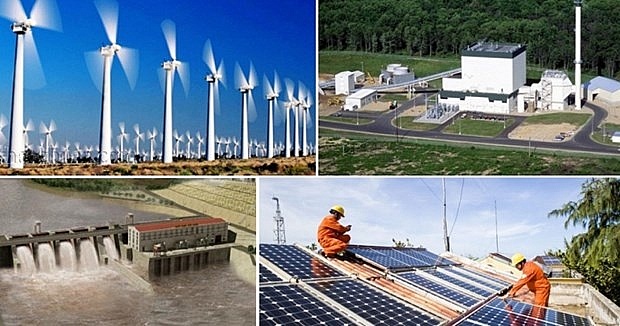 |
| Illustrative photo (Photo source: aseanvietnam.vn) |
Jakarta – Indonesian Energy Minister Arifin Tasrif has said that ASEAN countries need accessible low-carbon technologies and low-interest financing from multiple sources to achieve their net-zero targets.
Speaking at the ceremony that kicked off the country’s 2023 ASEAN energy chairmanship in Jakarta last week, Arifin said that according to a report by the International Renewable Energy Agency (IRENA), ASEAN will need 29.4 trillion USD up to 2050 for 100 per cemt renewable power generation.
That is why ASEAN needs financing from developed economies and global financial institutions such as the Just Energy Transition Partnership (JETP) and the Asia Zero Emission Community.
The bloc has set a goal to achieve 23 per cent renewables share in its total primary energy supply and 35 per cent in installed power capacity by 2025. Member states are also expected to achieve their nationally determined contributions by 2030, and eventually net zero emissions by 2050.
According to Arifin, Indonesia expects all ASEAN member countries to declare their net zero emission targets at the 41st ministerial meeting on energy in August this year.
He emphasised that their joint commitment will become the building block for ASEAN's net zero emission roadmap.
The roadmap will serve as an action plan for a just, affordable, reliable, and sustainable energy transition that leaves no one behind, following the social and economic conditions, as well as the priorities of the respective ASEAN countries, he added.
ASEAN now has 17,000 gigawatts of renewable energy potential. Some ASEAN members, including Indonesia, are blessed with abundant critical minerals - a mainstay for clean energy technologies such as electric vehicles, Arifin said, adding that ASEAN needs joint efforts to build the downstream industry in the ASEAN region.
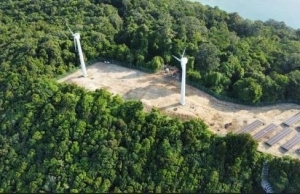 | ASEAN looks towards net zero emissions The Asian Development Bank (ADB) and ASEAN Catalytic Green Finance Facility jointly held the Southeast Asia Development Symposium themed “Imagining a net-zero ASEAN” in Indonesia’s Bali on March 30. |
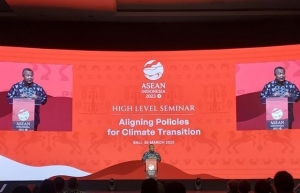 | High-level ASEAN seminar talks aligning policies for climate transition As part of the first ASEAN Finance Ministers and Central Bank Governors’ Meeting (AFMGM) 2023 in Bali on March 30, Indonesia organised a high-level seminar themed “Aligning Policies for Climate Transition” to support the message of sustainable development, one of the ASEAN priority economic deliverables (PED) this year. |
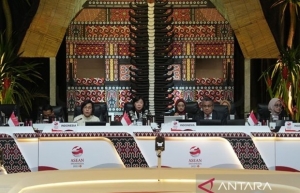 | ASEAN affirms its role as epicentrum of growth As part of the first ASEAN Finance Ministers and Central Bank Governors' Meeting (AFMGM) held from March 28-31 in Bali, the host country Indonesia organised AFMGMs with the ASEAN-US Business Council (ASEAN-US ABC), the EU-ASEAN Business Council (EU ABC), and the ASEAN Business Advisory Council (ASEAN ABAC) on March 29. |
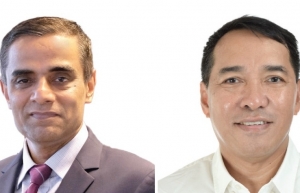 | Evolution in global value chains key for green and resilient ASEAN ASEAN has again proven itself to be among the world’s most resilient economic groupings. Relying on strong exports, sound macroeconomic policies, and effective buffers, the economies of ASEAN recovered rapidly from the devastating impacts of the pandemic, recording growth of 5.6 per cent in 2022 after falling to 3.2 per cent in 2020. |
 | ASEAN supports companies to utlise QR code purchasing across region Chairman of the ASEAN Business Advisory Council (ASEAN-BAC) Arsjad Rasjid, who is also Chairman of the Indonesian Chamber of Commerce and Industry (KADIN), on April 3 said that ASEAN-BAC will support micro-, small-, and medium-sized enterprises (MSMEs) in the region to implement QRcodeASEAN initiative. |
What the stars mean:
★ Poor ★ ★ Promising ★★★ Good ★★★★ Very good ★★★★★ Exceptional
 Tag:
Tag:
Related Contents
Latest News
More News
- Russian President congratulates Vietnamese Party leader during phone talks (January 25, 2026 | 09:58)
- Worldwide congratulations underscore confidence in Vietnam’s 14th Party Congress (January 23, 2026 | 09:02)
- Political parties, organisations, int’l friends send congratulations to 14th National Party Congress (January 22, 2026 | 09:33)
- 14th National Party Congress: Japanese media highlight Vietnam’s growth targets (January 21, 2026 | 09:46)
- 14th National Party Congress: Driving force for Vietnam to continue renewal, innovation, breakthroughs (January 21, 2026 | 09:42)
- Vietnam remains spiritual support for progressive forces: Colombian party leader (January 21, 2026 | 08:00)
- Int'l media provides large coverage of 14th National Party Congress's first working day (January 20, 2026 | 09:09)
- Vietnamese firms win top honours at ASEAN Digital Awards (January 16, 2026 | 16:45)
- ASEAN Digital Ministers' Meeting opens in Hanoi (January 15, 2026 | 15:33)
- ASEAN economies move up the global chip value chain (December 09, 2025 | 13:32)






















 Mobile Version
Mobile Version